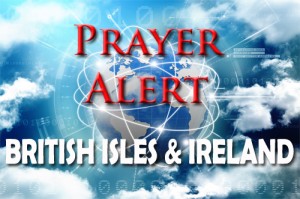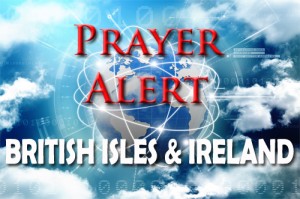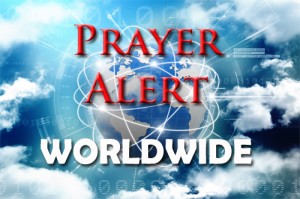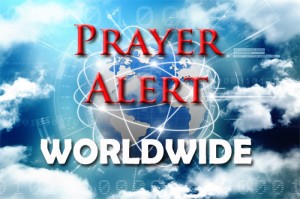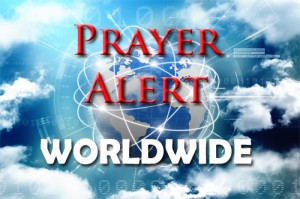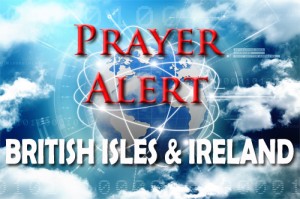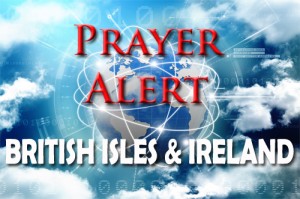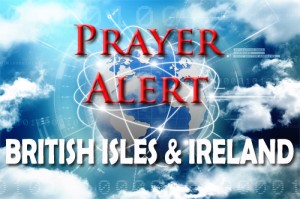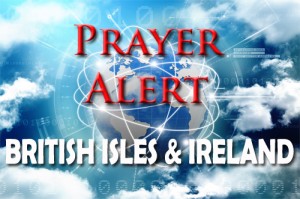Displaying items by tag: Religion
Sexual abuse in institutions
Institutions like the Church are putting their reputations ahead of victims of child sexual abuse, said an interim report from the Independent Inquiry into Child Sexual Abuse on 25 April. They examined 21 British institutions, including the Church of England and the Roman Catholic Church. Religious institutions were the third largest group of abusers, after schools and children's homes. When it came to the effect on victims' faith, the report said, ‘Victims and survivors may question their religion and spiritual beliefs, particularly where the perpetrator was connected to their religion or faith. They may also use religion and faith as a coping mechanism for resilience and recovery.’ The CofE's deputy safeguarding bishop welcomed the report and said, ‘As a Church we will be studying the report and the panel's recommendations carefully, particularly those which suggest specific changes to help us as an institution to give children better protection from sexual abuse.’
Freedom from addiction
Betel UK is a Christian charity helping men and women trapped in addiction. 44-year-old Kim says, ‘I came into Betel hoping to stay for two weeks to get off drugs. Fourteen years later, I'm still here! God has captured my heart and completely transformed my life. Now I live a life that was once unimaginable to me. I'm the women's supervisor here. I love seeing people being transformed by the power of the cross. I'm married with two beautiful daughters, and my life is focussed on the Lord and His plans for me. I once heard a speaker saying, “I don't want to go where God's presence won't be”. That's my heart. I lived without the Lord for so many years and now I can't imagine life without Him. I was once trapped in addiction and darkness, but through Jesus, I now have a freedom I never knew was possible.’
Taiwan: praying for fire to fall
At 9am on the fourth day of the ‘Hot Fire Special’, a long queue outside a basketball stadium in Taipei waited to enter and fill over 6,000 seats. Christians from home and abroad were praying in unison in a four-day call, ‘Lord, send fire’. In the front row, on the field, in the back row, hands raised high, hands low, standing, sitting, crouching, with loud shouts or struggling to cry - ‘Lord! Come to us! Come and fill us!’ They shouted, ‘We will give God a space to intervene in our hopeless life’, and ‘There must be a space reserved for God to work in our hearts.’ Pastor Zhang Zhenhua said, ‘When God has a great plan, He will not give you strategy in advance, He gives you a vision. God uses visions to motivate dead faith.’ Thousands in the stadium had a vision for God’s fire to fall on their nation, for the resurrection work of the Holy Spirit.
Tunisia: potential for change
There are many Christian ministries in Tunisia but only one officially recognised Christian body, a training ministry called the Augustine Association, which managed to get registration during the upheaval of the Arab Spring. Christians mostly gather for worship in homes, but some are too fearful of persecution to attend such meetings. After many postponements, municipal elections will be held on 6 May. Tunisian Christians ask for God’s hand to be over these elections so that their country will once again become a blessing for the whole region, as it was in the days of the early Church. The media reported that over 75% of the registered candidates are under the age of 45, with over 50% under 35. The high number of young fresh politicians running for election for the first time came as a shock to the political parties and blocs, and indicates potential changes in the coming years. See
Canada: Toronto prayers after van attack
Ten people were killed and fifteen injured in Toronto’s North York district on 23 April, after a white rental van deliberately drove along the pavement and into the crowds of pedestrians who were outside enjoying the warm spring weather. The rampage lasted 26 minutes before police apprehended Alek Minassian, the driver. Archbishop Colin Johnson said, ‘I weep for those who have died. I join in prayer for those who are physically injured or suffering emotionally from having witnessed such carnage, and for having lost loved ones. It is hard to comprehend such violence.’ Throughout Toronto, churches have opened their doors to offer prayer and pastoral care. Pray for those who will be suffering in the coming weeks from trauma, fear, confusion, anger and heartache.
White House Bible study group
In 2010 Capitol Ministries began a Bible study for representatives, which now has almost fifty members. When four of the group were elected to the Senate, they asked for a senators' Bible class, which began in 2015. Two months after Donald Trump took office, the same process led to a group for cabinet members. Trump started appointing to his cabinet all the men who were in the House and Senate bible study, men who were known to be believers. Unlike secular media, Christians noticed that the appointees had something in common - they were strong in Christ. Jeff Sessions (former health secretary), Tom Price, and others then started a cabinet Bible study. For the first time in 100 years, the US Cabinet has a Bible study group.
London: The Turning update
In February we praised God for the growth of The Turning since launching in 2016. In the coming weeks the vision will be shared at various locations across London. Organisers are working with denominations and city leaders in a vision for equipping believers in London to share the Gospel and disciple those who respond over the next three years. Their first step is running envisioning events for people to hear the story of how this outpouring of God’s grace landed in Reading, and hear Pastor Jonathan Oloyede share the vision of bringing the vision to London - and what that means for London churches. The first such event will be in Tottenham on 28 April, followed by ones at City Gates Church, Ilford and New Life Christian Centre, Stonebridge Park. Various meetings will then be held across London on following days.
Scotland: The Turning continues
The vision for The Turning is to equip every church member to be confident in sharing their faith - to start that simple conversation that could lead to someone encountering the saving grace and love of Jesus Christ. At the February envisioning meetings in Aberdeen, Inverness, Edinburgh, and Glasgow, 320 leaders and team members heard Pastor Yinka share the vision and history of The Turning. He returned with a small team to Scotland from 17 to 19 April for a second round of meetings for leaders who learnt more about what is involved in preparing for, holding, and, very importantly, following up a Turning mission. They also discussed what should happen in the months that follow, so that they can sustain an ongoing outreach in each community.
Guernsey: Christian leaders oppose assisted suicide
41 Guernsey church leaders wrote an open letter opposing introducing assisted suicide. Their letter said, ‘We believe the proposal to introduce a legal provision for assisted dying to be misplaced and dangerous for us as a community, particularly for the most vulnerable in our island. We believe the States of Guernsey should focus on the care of vulnerable people, support hospice care, increase mental health provision, and care well for those with age-related dementia. As a community we need to celebrate and support all of life, and not actively seek to terminate life. We fully support the care that our wonderful nurses, doctors, specialists and those in the caring professions provide on the island.’ The signatories include a hospice chairman and members of the Catholic, Anglican and Methodist churches. If the measure is passed by its parliament, the island will be the first place in the British Isles to legalise assisted suicide. Guernsey is a largely self-governing British Crown dependency.
Northern Ireland: women of faith and the peace process
Many believe that the Northern Ireland peace process is ‘tarnished’. The ‘Peace People’ are well-known in Northern Ireland, but other groups of Catholic and Protestant women are not. At recent seminars in Belfast, Catholic, Presbyterian, Methodist and Church of Ireland women recorded experiences of the ‘Troubles’ and how women of faith are ahead of their time in developing approaches to repairing the harms of today caused by the conflicts of yesterday. They gave innovative examples of ecumenical activism and community living that defied and transcended sectarianism, including the secret back-channel talks between politicians from different Backgrounds, critical in bringing about a cessation of the violence. We can pray for the continued work of ‘Cornerstone,’ a live-in, praying Community for reconciliation who network with other groups to be a ‘presence’ in their communities; and for ‘Widows Against Violence Empowered’ (WAVE), who help women traumatised after tragedy.
